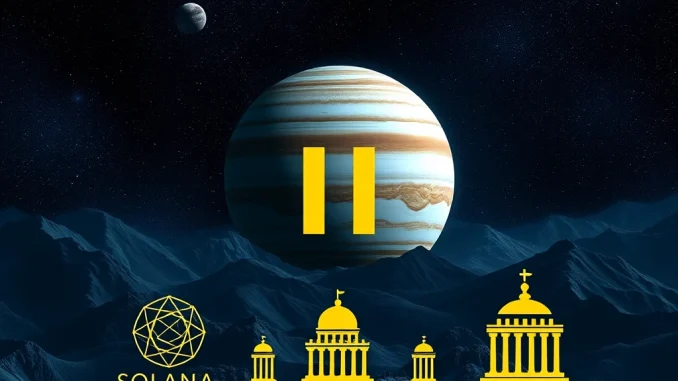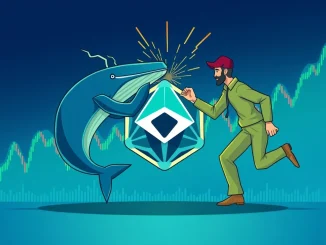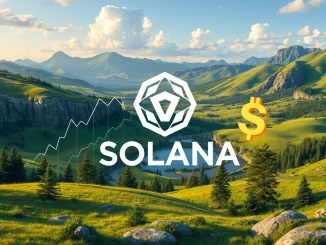
For those following the dynamic world of decentralized finance (DeFi), especially within the Solana ecosystem, a significant development has emerged. Jupiter (JUP), a prominent Solana DEX, recently announced a temporary halt to its decentralized autonomous organization (DAO) voting process. This move, set to last until the end of 2025, signals a strategic pivot aimed at addressing foundational issues within its current governance model. It’s a crucial Jupiter update that impacts how decisions are made within one of Solana’s key platforms.
Why the Pause in DAO Governance?
According to reports, the decision to pause DAO governance votes stems from concerns regarding the existing structure’s effectiveness. While the concept of decentralized decision-making is a core tenet of DeFi, implementing it smoothly and efficiently can present challenges. Jupiter’s team cited issues related to trust and overall inefficiency as primary drivers for this temporary suspension.
Putting a pause on DAO votes allows the protocol to step back and re-evaluate. It provides the necessary time to design a more robust and effective governance framework that can better serve the community and the platform’s long-term goals. This period isn’t about abandoning decentralization but rather about refining the process to make it truly functional and representative.
What Does This Mean for Jupiter JUP Holders?
If you hold JUP tokens, you might be wondering about the immediate impact. Here’s a breakdown of what the pause entails:
- **DAO Voting Halted:** As announced, formal DAO votes on proposals will not take place until 2026.
- **Staking Rewards Continue:** Importantly, the pause does not affect staking rewards. JUP holders who are staking their tokens will continue to receive rewards as before.
- **No New DAO-Funded Workgroups:** While existing initiatives may continue, the creation of new workgroups funded directly through the DAO mechanism is being paused.
This strategic pause allows the core team and community to focus on building the next iteration of Jupiter’s governance, ensuring that when voting resumes, it does so under a more refined and effective system.
Looking Ahead: A New Governance Model in 2026
The temporary halt isn’t a standstill; it’s a runway towards a new beginning. Jupiter plans to unveil a completely new governance model in 2026. The stated goal is to unify stakeholders and create a structure that addresses the previously identified issues of trust and inefficiency. Details about the new model are scarce currently, but the intent is clear: to build a governance system that is more resilient, inclusive, and capable of guiding the Solana DEX effectively into the future.
Developing a successful DAO governance structure is a complex undertaking. It involves balancing diverse interests, ensuring active participation, and creating mechanisms that prevent manipulation or stagnation. Jupiter’s commitment to overhauling its system suggests a dedication to getting this crucial aspect right, which could ultimately strengthen the platform and its community.
The Broader Context: Crypto News and Governance Evolution
This move by Jupiter is a notable piece of crypto news and highlights the ongoing evolution of governance models within the decentralized space. As protocols mature, teams and communities often identify areas for improvement in their initial DAO structures. Pauses or significant overhauls are not unheard of as projects strive for more effective, scalable, and secure ways to manage their decentralized operations.
Jupiter’s decision could serve as a case study for other protocols grappling with similar governance challenges. It underscores the principle that decentralization is a spectrum, and finding the right balance between community control and operational efficiency is key to long-term success.
In Summary
Jupiter’s announcement to pause DAO votes until 2026 marks a significant, albeit temporary, shift in its governance strategy. Driven by a need to address inefficiencies and build trust, this move allows the Solana DEX to focus on developing a new, improved governance model slated for release in 2026. While voting is on hold and new DAO-funded workgroups are paused, staking rewards for JUP holders will continue. This strategic pause, a key piece of recent crypto news, reflects the ongoing efforts within the DeFi space to refine decentralized governance and build more robust, community-driven protocols for the future.



